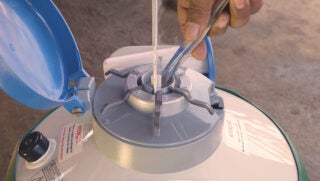“Beyond Organic Claims: Insights and Strategies for Increasing Your Organic Products’ Appeal.”
The webinar’s title immediately caught my attention. It was advertised on Food Dive and sponsored by Ingredion, a global innovator of food solutions. The event’s description promised to teach participants about the latest trends in organic labeling and marketing. And it offered participants an opportunity to learn exactly what consumers want when choosing organic labels.
The webinar’s timing was perfect. Growth in the organic-food sector has slowed significantly. Organic sales increased on average by 10 percent each year from 2010 to 2016. But the last two years the market experienced a growth of only about 6 percent. So organic producers will need to learn how to catch the eye of people already choosing the organic label. And they’ll need to compete with the other organic products on the shelves.
Pat O’Brien, who’s role at Ingredion focuses on the Clean & Simple label, started the webinar by explaining that the company has conducted a ton of market research. They’ve literally surveyed thousands of organic-purchasing consumers. And the results demonstrate the things companies should do to differentiate their organic products.
It’s actually quite simple. Organic customers choose organic products for three reasons: trust, nutrition, and sustainability. So companies are encouraged to manipulate those things into more labels.
These customers trust the USDA’s organic label because they believe it’s the most highly regulated food sector. So they feel more comfortable with their purchases. They also believe the organic label represents higher nutritional value and better-for-you options. And, finally, these purchasers perceive the organic label as being better for the environment.
Organic customers choose organic products for three reasons: trust, nutrition, and sustainability. So companies are encouraged to manipulate those things into more labels.
But what about the premium price charged for organic products? Ingredion says not to worry. Organic shoppers don’t care about how much more the label costs, as long as the other boxes are checked.
Manufacturers hoping to capitalize on this market also need to focus on simple ingredient lists, says Ingredion. Surveys found customers want fewer ingredients that are easily recognizable. And if a company can’t certify an entire product as organic, they should try to get as many ingredients to say organic as possible.
So far, the webinar was pretty predictable: Find ways to profit from the public’s misconception about the USDA’s organic program. Because we know conventional farmers are regulated just as much as their organic counterparts. Organic foods aren’t more nutritious. And organic production, in some cases, has a larger environmental impact. The Ingredion presenters didn’t seem overly concerned about the disconnect.
But then the twist: The webinar was actually a sales pitch for Ingredion. Apparently, many manufacturers face challenges when switching from conventional corn starch to organic versions. For some reason, the organic starches are instable, don’t last as long, and don’t have the same texture. So some companies have skipped it.
But Ingredion recently released organic functional native starches. These organic starches function much like conventional starches. So companies can make the switch without ruining the product and drastically increasing their prices. And the starches help manufacturers keep a “clean label.”
The entire webinar basically summed up my biggest problem with the USDA’s organic label: It’s just a big marketing gimmick. A shopper chooses an organic product because she wrongly thinks it has higher nutritional value, it’s safe, and it’s better for the environment. We ignore the fact that the ingredients aren’t as good despite the higher price. But now we’ve developed a new ingredient that allows us to couch our product in even more deceptive labeling.
The entire webinar basically summed up my biggest problem with the USDA’s organic label: It’s just a big marketing gimmick.
Here’s an idea: How about making food that’s actually more nutritious? Or how about actually creating transparency that helps connect consumers with farmers and develop trust? Or what if we focused on ingredients raised in ways that are actually sustainable? Maybe we could have some honesty in our labels and develop a relationship with consumers?
I know having integrity and being ethical is a bit old fashioned, but I guess that’s how I was raised. I’ll continue to skip the organic label during my shopping trips.
Amanda Zaluckyj blogs under the name The Farmer’s Daughter USA. Her goal is to promote farmers and tackle the misinformation swirling around the U.S. food industry.



